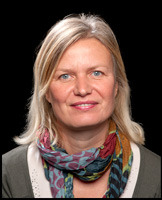Staff profile
Kendra Quinn
Postgraduate Associate

| Affiliation |
|---|
| Postgraduate Associate of the Wolfson Research Institute for Health and Wellbeing |
Biography
I hold two Honours Degrees; G.I.Biol. from Manchester, in Biology majoring in Microbiology and a BA (Hons) in Archaeology from Leicester University. In addition I have a PGCE (Science) and Masters Degree (MEd) from Newcastle University.
I worked for the NHS as a Medical Microbiologist for four years. I then went into teaching in Secondary Schools where I taught GCSE Science and worked as a Senior Examiner for GCSE examinations. Latterly, I worked in a Sixth Form College where I taught A Level Biology and I also set up and ran A level Archaeology.
I also worked as an Education Consultant delivering and running training courses for whole schools, and for groups of teachers and school management on the subjects of my research, mainly in raising the achievements of boys in education.
Research Topic
A BIOARCHAEOLOGICAL STUDY OF THE IMPACT OF MOBILITY ON THE TRANSMISSION OF TUBERCULOSIS
Abstract
Tuberculosis (TB) is an infectious disease mainly transmitted to humans by the inhalation of infected droplets (produced when an infected person coughs or sneezes). The disease is caused by bacteria of the genus Mycobacterium, several species of which can cause infection in humans. In the early 1990s, the World Health Organisation (WHO) declared tuberculosis a global emergency and this continues to be the case today. We seem to be far from eradicating this killer disease than we have been at any point in our past, and the increase in global travel is thought to be exacerbating its spread.
My PhD tests the hypothesis that people in Roman Britain who were infected with tuberculosis had been mobile at some point in their lives. This research extends previous research funded by the NERC (2007-2011) that has analysed aDNA of M. tuberculosis complex organisms from skeletons with bone changes consistent with TB from the Roman period in Britain. Its focus is stable isotopic analysis on the same skeletons. (C, N, Sr, O and Pb) to establish if they were local or non-local to their burial location.
Archaeology Conferences
BABAO 2014 (Sept 12th – 14th) at Durham University, which I helped to organise and run.
I have also attended every annual Tees Archaeology conference and Durham Archaeology Day.
Poster Presentations
2015- Wolfson Research Institute for Health and Wellbeing Early Stage Research Conference.
Quinn, K. (2015) A Bioarchaeological Study of the Impact of Mobility on the Transmission of Tuberculosis in Roman Britain between the 1st and 4th centuries AD.
Grants
- NERC Isotope Geosciences Laboratory Grant No IP-1499-1114
- Norman Richardson Fund (2015). Ustinov College, Durham University
Membership of Professional Bodies
Chartered Institute for Archaeologists.
Current Teaching Commitments
- Tutor for BA/BSc Archaeology module “Archaeology in Action” at Durham University. October 2014- May 2015
- Tutor on DULTA (Durham University Learning and Teaching Award). January 2014 – present.
- Guest Lecturer for MSc Palaeopathology on TB/isotope analysis.
- Personal tutor for A level Biology (OCR and AQA exam boards)
Community Liason
- Archaeology talks given to Redcar Womens’ Institute and St Peter’s Church, Redcar Mens’ Group.
- Member of Tees Archaeological Society.
- Active field archaeologist, mainly at Street House, Loftus where I have led guided talks for groups of interested members of the public and Archaeology students.

